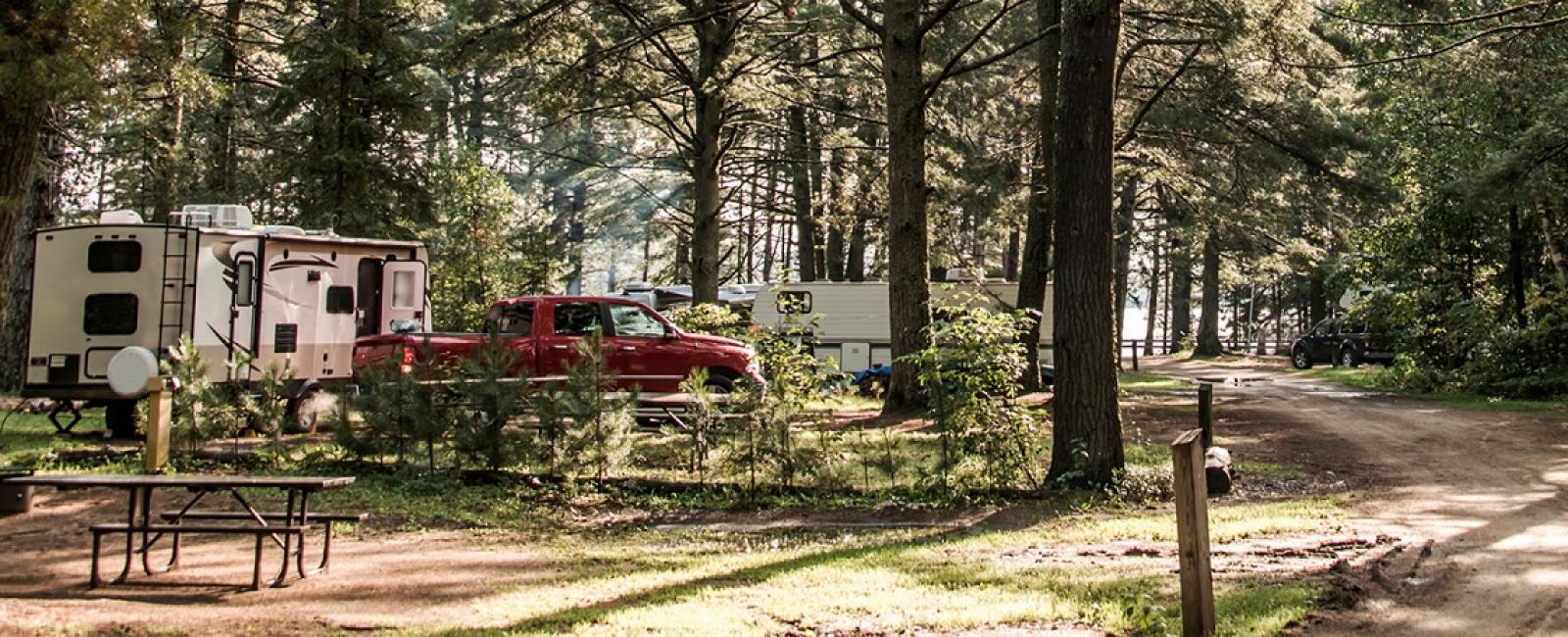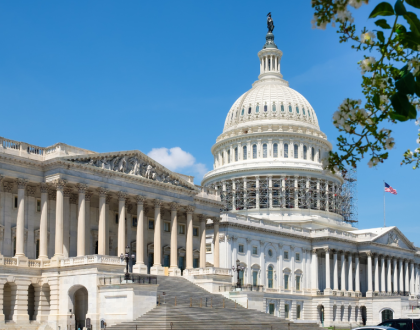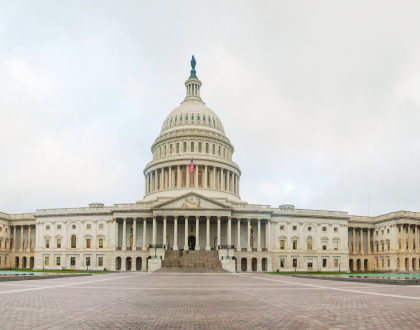
Campground Modernization And Expansion
The RV Industry Association supports increased investment in campgrounds on public lands as well as the establishment of partnerships between experienced campground operators and the federal government, where appropriate, as an entrepreneurial mechanism for addressing campground modernization on public lands and in gateway communities.
The RV industry has been experiencing 40 years of long-term growth that has been super charged over the past few years as new, younger, and more diverse consumers turn to RVing as the perfect way to explore the great outdoors, work/attend school remotely, and experience the many physical and mental health benefits of being outside. In 2024, a record 11.2 million households own an RV, up 26% over the past 10 years and up 62% over the past 20 years. An incredible 9.6 million households intend to buy an RV within the next 5 years.
As an unprecedented number of Americans flock to the RV industry, there is a well-established need for campground modernization and expansion to address outdated campground infrastructure. The good news is, fixing our iconic parks and campgrounds is a smart investment – for every dollar Congress invests in our national parks over $10 is returned to the U.S. economy. For example, in 2023, 312 million park visitors spent an estimated $23.9 billion in local gateway regions while visiting National Park Service lands across the country. These expenditures supported a total of 378,000 jobs, $17.5 billion in labor income, and $50.3 billion in economic output in the national economy.
Furthermore, according to a recent Bureau of Economic Analysis (BEA) report, outdoor recreation generates $1.1 trillion in economic output (2.2% of GDP), supports 5 million jobs and comprises 3.2% of U.S. employees. Across all metrics the outdoor recreation economy’s growth has outpaced that of the U.S. economy. The new numbers show that RVing was the largest conventional activity for the nation at $35.5 billion in current-dollar value added and was the largest conventional activity in 22 states.
Inventory and Access
We now have a comprehensive report that details the availability of campsites and campground amenities at federal, state, municipal, and private campgrounds across the United States, which shockingly details that while there are 11.2 million households that own an RV, there are only 20,467 campgrounds with RV accessible sites.
In a survey of more than 2,000 RV owners, 98 percent of RVers believe the national park campgrounds need to be repaired, updated, reopened, expanded, and/or modernized. The most desired improvements were longer and wider sites, additional RV hookups, improvement of the day-to-day upkeep of campgrounds, and more RV-friendly campsites.
Connectivity
Broadband coverage of major federal front country sites and key road corridors is needed to supply visitors with much-needed cell and internet service. As a record number of Americans continue to visit our national parks – 325.5 million in 2023 – and work and learn remotely in RVs, this advanced service will supply visitors with reliable connectivity and access to safety features like weather alerts and the ability to contact emergency services. Increased broadband coverage will also improve the consumer experience by allowing enhancements such as online reservations and rentals.
Economic Development & Rural Prosperity
Fixing our national park and gateway community infrastructure is a good economic investment for our country generally, but these investments are also a proven way to grow rural prosperity. Many rural communities act as gateways to public lands, and the opportunities outdoor recreation creates on these public lands bring jobs, tourism, and commerce into rural areas.
In 2023, 312 million park visitors spent an estimated $23.9 billion in local gateway regions while visiting National Park Service lands across the country. These expenditures supported a total of 378,000 jobs, $17.5 billion in labor income, and $50.3 billion in economic output in the national economy. This economic impact created by outdoor recreation and RVers in gateway communities helps to revitalize rural America. Balancing the potential for outdoor recreation with respect for the local community can lead to fruitful partnerships and opportunities for all stakeholders.
Partnerships
Bringing public lands infrastructure into the 21st century will require robust and creative collaboration across the public and private sectors. When partnerships between private industry, such as experienced campground operators, and the federal government are discussed, there can be confusion about whether this model would lead to the “privatization” of federal lands. It does not. These partnerships are not privatization – the RV Industry Association does not support the privatization or selling of federal campgrounds. What these partnerships do allow is for campground improvements and modernization to be made with private investment and volunteer services – without draining federal resources that are thin or not available.
These partnerships are a sensible, proven way to bring public land infrastructure into the 21st century, ensuring the federal government remains the owner of all public lands and preserving access and enjoyment of federal campgrounds for current and future generations of RVers to come. They are based on a model that has successfully worked on federal lands for decades and offer the best approach to effectively striking the necessary balance between achieving conservation needs and improving the experience for an ever-changing consumer.
Legislative Solution
America’s Outdoor Recreation Act (AORA) in the Senate and Expanding Public Lands Outdoor Recreation Experiences (EXPLORE) Act in the House is a first-of-its-kind, comprehensive legislative package that combines several bipartisan and bicameral bills the outdoor recreation industry has long supported. These bills serve as reminders of how the outdoors brings people together from both sides of the aisle.
This commonsense legislation would appropriately meet the growing demand for access to the outdoors while also protecting public lands and waters for future use by improving experiences and access for all, advancing conservation efforts, mitigating the impacts of increasing visitation, and continuing to grow the $1.2 trillion outdoor recreation economy. This transformative legislation would be a win-win for businesses, conservation, and Democrats and Republicans alike, while supporting rural economies, communities, and our American quality of life.
Specifically, the legislation will:
- Grow jobs in rural communities and increase access to public lands to ensure more RVing Americans can enjoy the many physical and mental health benefits of an active outdoor lifestyle.;
- Provide gateway community assistance for outdoor recreation businesses, including RV campgrounds.;
- Responsibly extend federal land shoulder seasons to spread out demand and create more RV camping opportunities.
- Establish partnership agreements with experienced campground operators to sustainably modernize campgrounds on federal lands, where appropriate.;
- Bring much-needed broadband/Wi-Fi to front country campgrounds to address safety issues and provide technologies that park visitors expect.
The RV Industry Association encourages Congress to act swiftly to pass America’s Outdoor Recreation Act (S.873) and the EXPLORE Act (H.R. 6492).
News & Insights
Please Sign in to View
Log in to view member-only content.
If you believe you are receiving this message in error contact us at memberservices@rvia.org.



